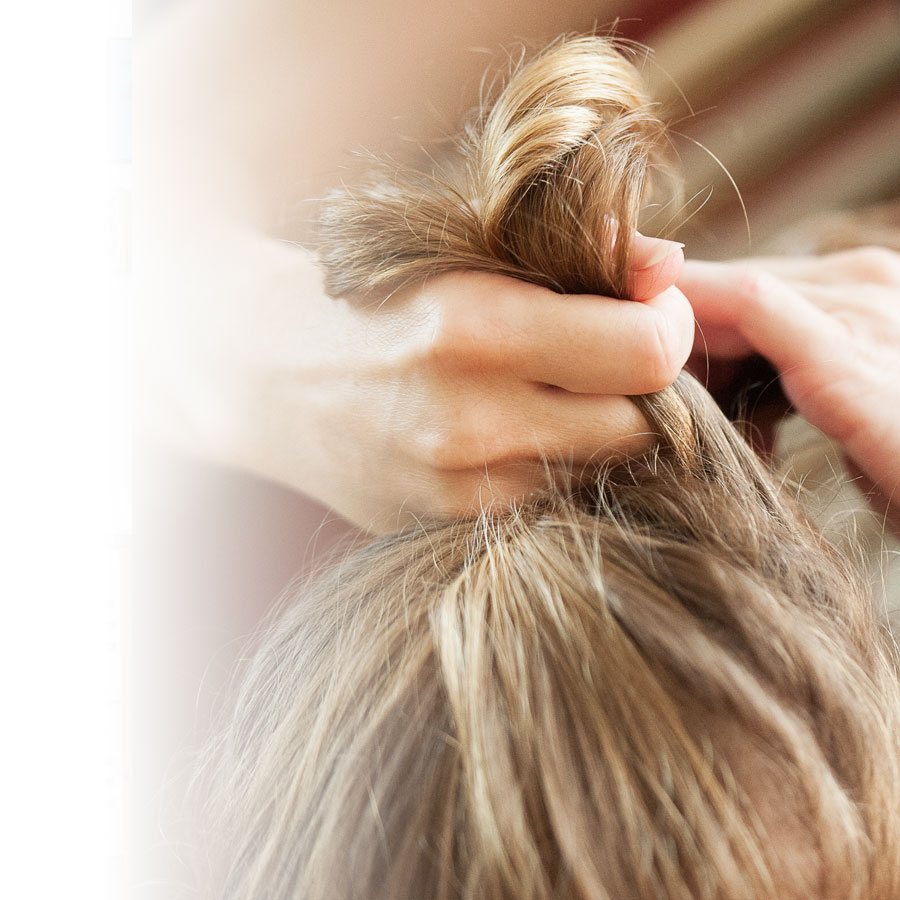Need a consultation related to the health condition discussed in this article? Schedule an appointment with your pharmacist at a time that works for you.
Did you know that your pharmacist can help you win the battle against lice by prescribing an effective treatment, among other things?
What you need to know about lice
Head lice are tiny wingless bugs grey-brown in colour and about the size of a sesame seed that live on the human scalp. They live for about 30 days and feed themselves by sucking blood through the scalp, which causes itching. The female lays brown or beige oval-shaped eggs (nits), the size of a grain of sand. Nits latch onto the hair shaft close to the scalp, especially at the nape of the neck and behind the ears. As the hair grows, nits move away from the scalp. Once hatched, the shell becomes translucid.
It is mostly by identifying the presence of nits that an infestation of lice is detected, since lice are hard to see. If you see nits more than 1 cm away from the scalp, they have either hatched or are dead. Unlike dandruff, lice are difficult to remove with a blow dryer or hairbrush.
How do lice spread?
Lice spread through direct contact (head to head) with an affected person or indirect contact via contaminated objects: comb, brush, hat, scarf, bedding, etc. Indirect transmission is less common, since lice do not survive more than 2 or 3 days without a human host.
Transmission occurs mainly at home, school or daycare, or in public areas. An outbreak of lice has nothing to do with cleanliness or personal hygiene. Lice do not live on animals, so pets cannot transmit lice. Contrary to popular belief, lice do not jump from head to head.
How to tell if you have lice
- A first sign is an itchy scalp or scratching of the head, especially at night.
- Children aged between 5 and 12 are more susceptible to get lice. Hair length is not a factor.
- Good lighting and a magnifying glass are useful in checking for nits and lice.
What to do if you find lice or nits
If you find lice or nits, you must act immediately!
- It is important to treat affected children before letting them return to school or daycare. Be sure to inform school or daycare staff and other groups your child is involved with (sports team, scouts or guides, etc.) about the lice outbreak, so they can take the necessary action.
- Examine all other family members and close friends. Remember that if one family member has lice, the rest of the family will likely have them as well.
- Speak to your pharmacist, who will help you choose the best treatment. Pharmacists can explain how to use the recommended product properly, and can prescribe them to you as well.
How to treat lice effectively
- Carefully follow instructions for using the products your pharmacist or doctor recommends or prescribes.
- Pay attention to the product’s application time.
- After treating your hair for lice, wait at least two days before washing it.
- The treatment you choose must be repeated twice, and in some cases, three times. Ask your pharmacist how many times your should apply the treatment and when to repeat it. A second application is needed even if there are no visible lice or nits. It’s important to carefully follow these instructions to ensure optimal treatment.
How to remove nits easily
- Use a regular comb or brush to untangle hair.
- Examine the hair strand by strand. Work in a well-lit area. If necessary, use a magnifying glass to help you see the nits.
- Use your fingers to remove the nits, or comb the hair from tip to root with a special fine-toothed comb, working methodically to remove the nits. This stage is necessary to ensure the success of the treatment. If necessary, consult your pharmacist to select the proper comb.
How to prevent a lice infestation
- After treatment, continue to inspect the scalp and hair for 2-3 weeks to make sure nits and lice have disappeared.
- Wash all clothes and bedding used by the infected person as soon as you find lice.
- Wash clothes and bedding in hot water and dry on high heat for at least 20 minutes.
- Send clothes or other items that cannot be washed to the dry cleaner.
- Clean combs and brushes with hot soapy water (65° C) for 10 minutes.
- Vacuum carpets, car seats, mattresses and furniture.
- Tell children not to share combs, brushes, hair clips or hats with their friends.
Don’t hesitate to speak to your pharmacist if you have any questions about lice and its treatment. In addition to prescribing the right treatment, they can answer all of your questions and provide valuable information, so you can eliminate these unwelcome intruders once and for all! Prepare your visit to the pharmacy by completing this form and bringing it with you when you speak to the pharmacist.

